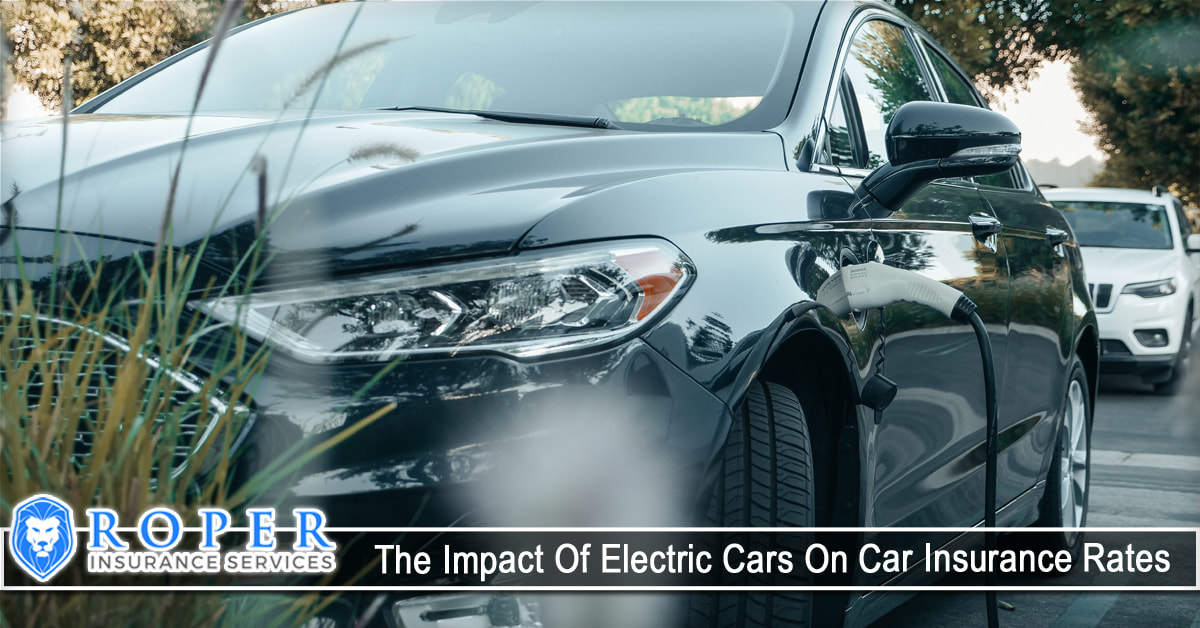|
Electric vehicles (EVs) have gained significant popularity in recent years due to their environmental benefits and advancements in technology. As more drivers make the switch to electric cars, it's essential to understand how this shift can impact car insurance rates. In this blog, we'll explore the relationship between electric cars and car insurance and provide insights into what you can expect as an EV owner. Lower Accident Rates for Electric Cars
One of the factors influencing car insurance rates is the vehicle's safety record. Electric cars often have advanced safety features and technologies that contribute to a reduced risk of accidents. Features like collision avoidance systems, autonomous emergency braking, and adaptive cruise control can help drivers avoid collisions and reduce the severity of accidents when they do occur. This lower accident risk for electric cars can lead to more favorable insurance rates. Lower Maintenance Costs for Electric Cars Electric vehicles typically have fewer moving parts than traditional gasoline-powered cars. This means they require less maintenance and have a reduced risk of mechanical breakdowns. From an insurance perspective, lower maintenance costs can translate to lower premiums, as insurers may need to pay out fewer claims related to mechanical failures. Lower Noise Levels and Pedestrian Safety Electric vehicles are known for their quiet operation, which can be a concern for pedestrian safety. To address this, many countries and regions have introduced regulations requiring electric cars to emit artificial sounds at low speeds. These safety measures can reduce the risk of pedestrian accidents, further contributing to the overall safety of electric vehicles. Potential for Higher Repair Costs While electric cars tend to have fewer accidents due to their advanced safety features, repair costs for electric vehicles can be higher. Electric car components, such as batteries and specialized electronics, can be more expensive to repair or replace than traditional car parts. As a result, insurance companies may factor in these potential higher repair costs when determining premiums. Unique Coverage Considerations for Electric Cars When insuring an electric car, there are specific coverage considerations to keep in mind:
Consider Discounts and Bundling for Auto Insurance When it comes to auto insurance, there are various strategies to optimize your coverage and potentially lower your premiums. Many insurance providers offer discounts based on factors like safe driving records, vehicle safety features, and driver training courses. Additionally, bundling your auto insurance with other policies, such as home or renters insurance, can often result in savings. Be sure to discuss available discounts and bundling options with your insurance agent to maximize your coverage benefits and potentially reduce your auto insurance costs. In Conclusion The impact of electric cars on car insurance rates is multifaceted. While factors like advanced safety features and reduced accident risks can lead to lower premiums, potential higher repair costs may offset these benefits. As electric vehicles continue to evolve and gain popularity, insurance companies will refine their pricing models to accurately assess the risk associated with insuring electric cars. If you're considering purchasing an electric vehicle, it's essential to discuss your insurance needs with a knowledgeable agent and explore coverage options that suit your specific circumstances. Ultimately, as the electric car market continues to grow, car insurance rates for EVs are likely to become more competitive and tailored to the unique needs of electric vehicle owners. At Roper Insurance Services, we are dedicated to providing our clients with comprehensive and affordable insurance policies. Our commitment extends to going the extra mile to address your specific needs. To learn more about how we can assist you, please contact our agency at (828) 697-6709 or CLICK HERE to request a free quote. Disclaimer: The information presented in this blog is intended for informational purposes only and should not be considered as professional advice. It is crucial to consult with a qualified insurance agent or professional for personalized advice tailored to your specific circumstances. They can provide expert guidance and help you make informed decisions regarding your insurance needs.
0 Comments
Leave a Reply. |
Share ThisContact Us(828) 697-6709 Archives
July 2024
Categories
All
|
- Home
-
Quotes
- Life/Health/Financial Products >
-
Property/Casualty Insurance Products
>
- Auto Quote
- Homeowner Quote
- ATV Insurance Quote
- Business Quote
- Boatowner Quote
- Business Owners Package (BOP) Insurance Quote
- Classic Car Insurance Quote
- Condo Quote
- Earthquake Insurance Quote
- Event Insurance Quote
- Flood Quote
- Landlords Insurance Quote
- Insurance Bonds Quote
- Motorcycle Quote
- Renters Quote
- Roadside Assistance Quote
- RV Insurance Quote
- Travel Quote
- Umbrella Quote
- Service
-
Products
- Life/Health/Financial Products >
-
Property/Casualty Insurance Products
>
- Auto Insurance
- Home Insurance
- Business Insurance
- ATV Insurance
- Boat Insurance
- Business Owners Package (BOP) Insurance
- Classic Car Insurance
- Condo Insurance
- Earthquake Insurance
- Event Insurance
- Flood Insurance
- Insurance Bonds
- Landlords Insurance
- Motorcycle Insurance
- Renters Insurance
- Roadside Assistance
- RV Insurance
- Travel Insurance
- Umbrella Insurance
- Blog
- About
- Contact
Licensed to sell in North Carolina and South Carolina
Navigation |
Social Media |
Contact UsRoper Insurance Services
118 E Caswell St Hendersonville, NC 28792 (828) 697-6709 Click Here to Email Us |
Location |
Website by InsuranceSplash
- Home
-
Quotes
- Life/Health/Financial Products >
-
Property/Casualty Insurance Products
>
- Auto Quote
- Homeowner Quote
- ATV Insurance Quote
- Business Quote
- Boatowner Quote
- Business Owners Package (BOP) Insurance Quote
- Classic Car Insurance Quote
- Condo Quote
- Earthquake Insurance Quote
- Event Insurance Quote
- Flood Quote
- Landlords Insurance Quote
- Insurance Bonds Quote
- Motorcycle Quote
- Renters Quote
- Roadside Assistance Quote
- RV Insurance Quote
- Travel Quote
- Umbrella Quote
- Service
-
Products
- Life/Health/Financial Products >
-
Property/Casualty Insurance Products
>
- Auto Insurance
- Home Insurance
- Business Insurance
- ATV Insurance
- Boat Insurance
- Business Owners Package (BOP) Insurance
- Classic Car Insurance
- Condo Insurance
- Earthquake Insurance
- Event Insurance
- Flood Insurance
- Insurance Bonds
- Landlords Insurance
- Motorcycle Insurance
- Renters Insurance
- Roadside Assistance
- RV Insurance
- Travel Insurance
- Umbrella Insurance
- Blog
- About
- Contact


 RSS Feed
RSS Feed